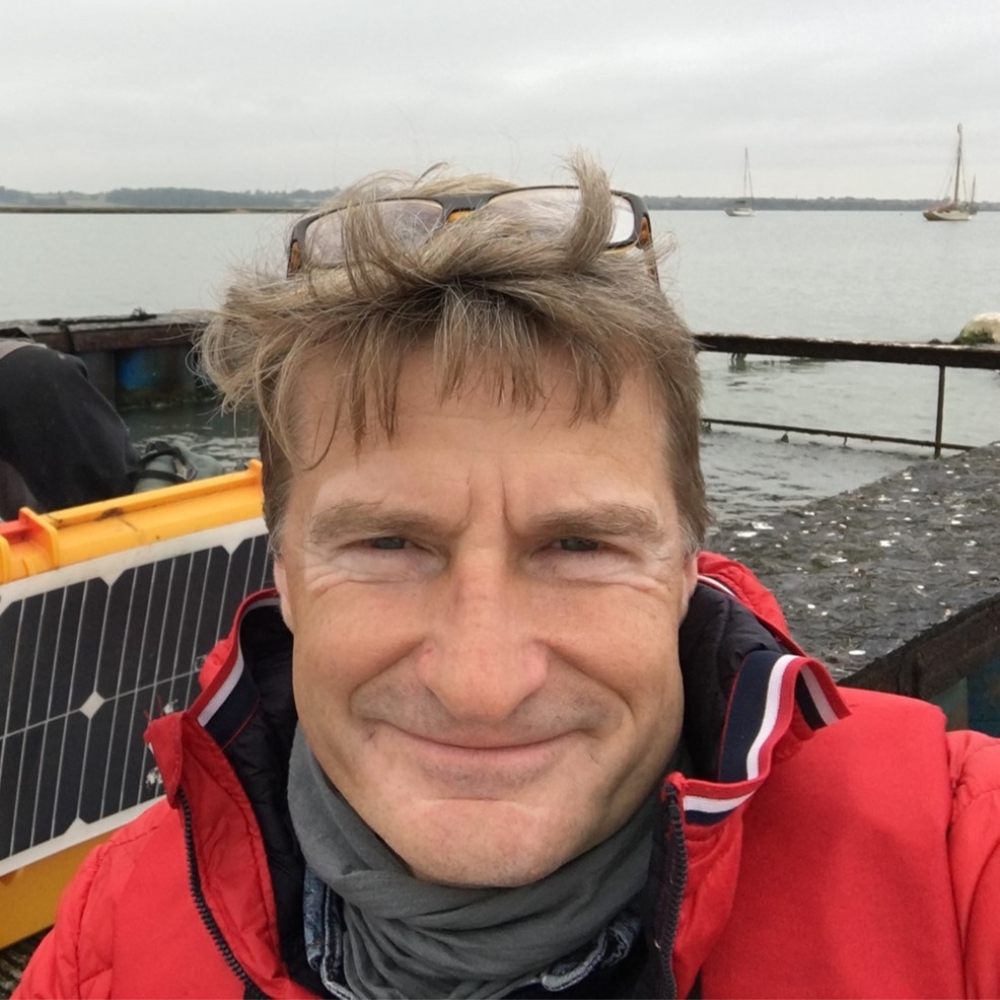Interdisciplinary focus
Various stakeholders including the fishing, leisure and tourism industries, conservation groups, environment management agencies and local governments affect the planning and development of coastal environments. Any changes to existing coastal defence strategies – typically hard-engineered seawalls – must consider the views and requirements of all stakeholders. You will use an interdisciplinary approach to provide the natural science base, map the current and potential habitats of native and introduced oysters using drone, acoustic and on-foot surveys, and quantify oyster reef development on various substrates at a pilot site in the Colne estuary (supervised by Dr Steinke), explore the perceived barriers and opportunities around the naturalisation of an introduced species that supports the shellfish industry (supervised by Dr Wheeler), and assess the level of acceptance of nature-based alternatives in coastal communities using big-data methodologies (supervised by Dr Ali).
Training and support
You will be supported through the Sustainable Transitions training programme which provides initial training in interdisciplinary research methods, training in the secondary discipline within the project area, and ongoing training throughout the duration of the programme. All doctoral scholars benefit from the support of Proficio, which entitles you to £2,500 that can be used to purchase training courses either within or external to the University. Additionally, all scholars are entitled to an additional £10,000 that can be used to cover research costs and further training. Doctoral scholars are encouraged to audit/attend University masters and degree level courses where appropriate. You will also have the support of the Sustainable Transitions management team as well as your own supervisory team. All Sustainable Transitions scholars will become part of the University of Essex Centre for Environment and Society through which ongoing events and networking opportunities are available.
Person specification
This opportunity would suit someone with a curious mind that enjoys interdisciplinary work. A degree in environmental/marine science would be advantageous but candidates with a social-science degree and environment-facing experiences or skills will be considered.
Research proposal
The project area is broadly defined, leaving scope for the applicant to develop their own specific research proposal as part of the application. The successful candidate will further develop their proposal in close consultation with the supervisory team.
Supervision
The primary discipline supervisor takes the lead responsibility for supervising the project. For further detail relating to supervision see the Guidance for Applicants (.pdf) document.
Additional background information
Climate change puts coastal communities at risk of flooding and coastal erosion due to more frequent and intense storms on top of sea level rise. While hard-engineered coastal defences are costly to build and maintain, living coastal defences such as oyster reefs are self-sustaining and can grow with sea-level rise. Historically, oyster reefs of the native species, Ostrea edulis, protected the Essex shoreline until these were overharvested and decimated by disease from the early 20th century. To revive the flagging shellfish industry in the UK, a non-native species (the Pacific oyster Magallana gigas) was introduced for aquaculture from the 1960s which now supports a coastal industry worth £6 million per year but has produced wild populations that encroach on protected mudflat habitats. To address this controversy and consider the use of native and introduced oysters for coastal defence, we need collaboration between higher education, local government, fishing, leisure and tourism industries, conservation groups, and environment management agencies.
The aim of this project is to establish a framework for the sustainable transition of coastal defence strategies using oyster reefs. You will map the habitat of existing oyster reefs along the Essex coast, assess areas suitable for oyster reef expansion and relate this to the Environment Agency’s National Coastal Erosion Risk data. With support by a local oyster fishery, you will trial the effectiveness of artificial structures to enhance oyster-reef formation. Exploring how different stakeholders engage with this intervention within a distinct national case study will reveal some of the socio-cultural and political barriers and opportunities for widespread adoption of this approach. Comparative insights from different national contexts can also help us to understand how political, socio-cultural and economic systems shape the acceptability of this nature-based coastal defence. This approach has the potential to build a new planning framework that could support a sustainable transition to nature-based solutions for coastal defence using oyster reefs.
Supervisory team references
-
Shakspeare, A., H. Moore, M. Service, C. Wilson, H. Ahmed, T.C. Cameron, M. Steinke (2023) Gaping behaviour of Blue mussels (Mytilus edulis) in relation to freshwater runoff risks. Aquaculture Reports 33: 101719; doi:10.1016/j.aqrep.2023.101719
- Funesto, E.G.M., A.M. Lewis, A.D. Turner, T.C. Cameron, M. Steinke (2023) Immediate and delayed effects of a heatwave and Prorocentrum lima ((Ehrenberg) Stein 1878) bloom on the toxin accumulation, physiology, and survival of the oyster Magallana gigas (Thunberg, 1793). Science of the Total Environment 892: 164485 doi:10.1016/j.scitotenv.2023.164485
- Wheeler, K. (2019) The Moral Economies of Consumption. Journal of Consumer Culture,19(2): 271-288
- Wheeler, K., M. Glucksmann (2015) Household Recycling and consumption work: social and moral economies, Hampshire: Palgrave Macmillan
- Chamberlain, J., B. Turpin, M. Ali, K. Chatsiou, K. O'Callaghan (2021) Designing for collective intelligence and community resilience on social networks. Human Computation 8(2): 15-32.






